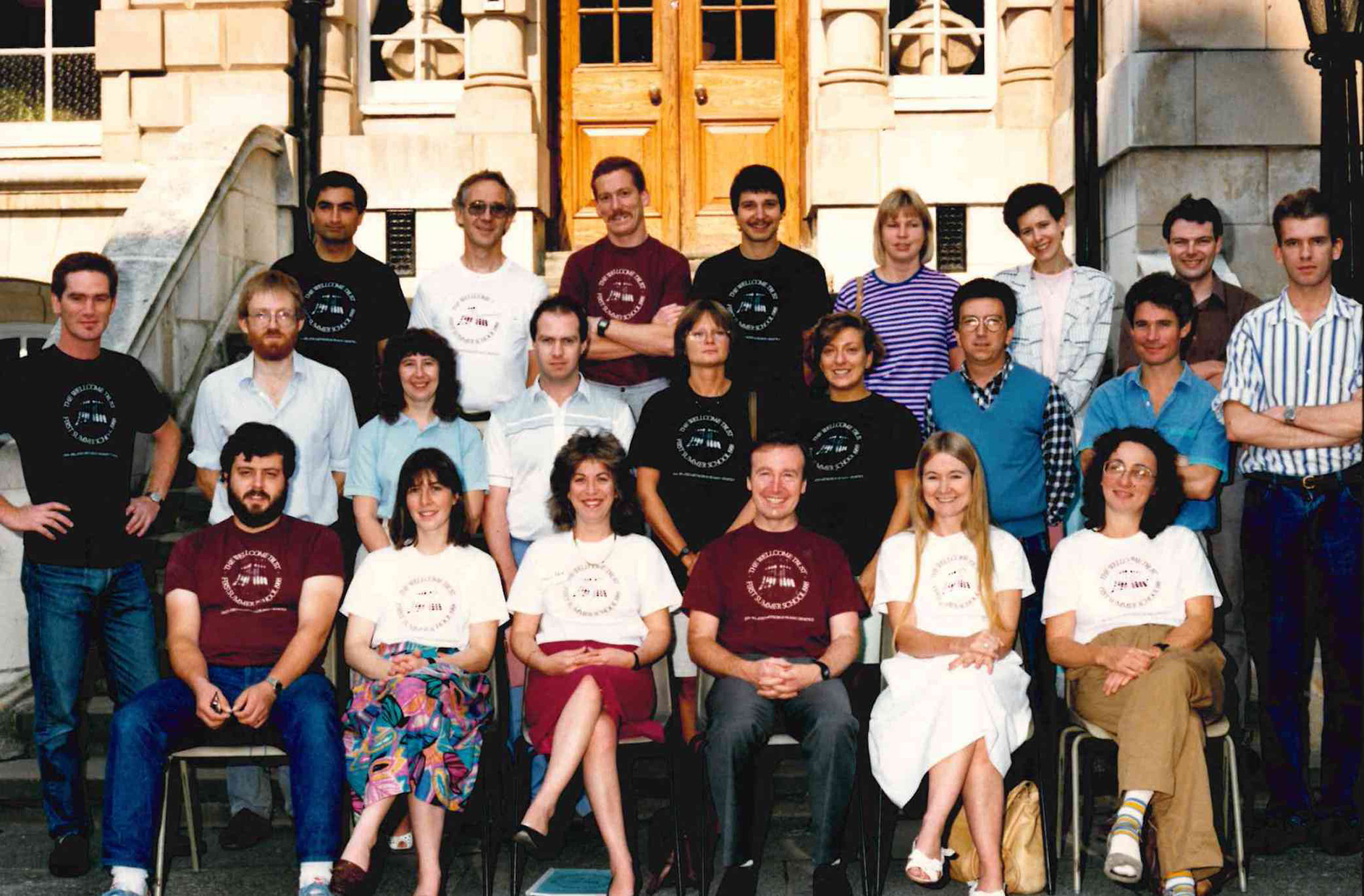
Thirty years of Advanced Courses and Scientific Conferences: Accelerating research and diagnostics through sharing knowledge in genomics
ACSC started out in 1988 with 12 participants. Since then we have held 374 courses and 259 conferences!
The year marks the 30th anniversary of Advanced Courses and Scientific Conferences! Since its inception 38,859 scientists and healthcare professions from over 130 different countries have attended our events at the Wellcome Genome Campus and another 1,493 at courses in Africa, Asia and Latin America. Feedback from delegates demonstrates that the programme has real impact, contributing to the acceleration of research and diagnosis of disease as well as helping build careers.
The Advanced Courses and Scientific Conferences programme (ACSC) started out in 1988 with 12 participants wanting to learn about cutting-edge (pulse field gel electrophoresis and PCR) DNA Related Methods in Human Genetics at a summer school at Guy’s and St Thomas’ Hospital, funded by the Wellcome Trust. The expert instructors were Professors Kay Davies and Anna-Maria Frischauf, with speakers including Professors Ed Southern and Alec Jeffries.

After several years of holding summer schools it became apparent that permanent training facilities were required, and so the programme moved to the Wellcome Genome Campus in 1998 and expanded rapidly. New initiatives included the Overseas Courses aimed at capacity-building in genomics in low- and middle-income countries, and specialist courses for healthcare professionals in genomics in the UK were initiated in 2005. In 2009 Advanced Courses joined with the Wellcome Trust Meetings Programme (established 1999) to form ACSC. New courses and conferences were born from synergies between the two programmes in topics such as viral genomics and single cell technologies.
The first course evolved into Functional Genomics and Systems Biology, and ran for 29 years until 2016, and our first conference – Genome Informatics – started in 2001 and is still very popular. But most early events have been superseded by the fast-paced changes in genomic methods and technology and the programme is constantly changing to ensure it is cutting-edge.
Where are some of those first course participants now? Christine Van Broeckhoven is Professor of Molecular Genetics at the University of Antwerp, working on neurodegenerative brain disease, and Rajesh Thakker is the May Professor of Medicine at the University of Oxford researching the molecular basis of disorders of calcium homeostasis.
I remember the meeting very well as it was the first one and I learned a lot about pulsed field gel electrophoresis and jumping and linking libraries. Kay Davies and Anna-Maria Frischauf were fantastic tutors and it was great that Michael Morgan had the inspiration to initiate this type of summer school.
Professor Thakker, May Professor of Medicine at the University of Oxford
Professor Thakker notes that data produced on pulsed field gel electrophoresis was published in the Journal of Clinical Investigation (2005), and the linking libraries they made at the summer school were published in Human Genetics (1996). He still remembers the course as “very useful” and having “a major impact in my career”.
Since then we have held 374 courses and 259 conferences. Our events are intense and highly-productive, giving talented scientists the skills to accelerate their research, healthcare professionals tools to improve diagnosis of disease, as well as bringing together great minds to share knowledge and form important collaborations, creating the next generation of leaders in the field of genomics.
I am very proud of the hard work my team has put into developing the programme over the past 30 years, and the impact the programme is having on research, diagnostics and developing scientific careers across the world.
Dr Rebecca Twells, Head, Advanced Courses and Scientific Conferences
Over the last 30 years, partnerships have been developed with international organisations and institutes, such as H3Africa and the Pan American Health Organisation, to address regional training needs. Some of our conferences are held with partners such as the European Molecular Biology Laboratory, Cold Spring Harbour Laboratories, and Nature Genetics, building on mutual scientific interests. We also work with local partners such as the University of Cambridge, EMBL-EBI, the Wellcome Sanger Institute, and Health Education England, to deliver training in genomic medicine to healthcare professionals within the NHS.
Currently we are expanding the programme even further and aim to reach another 20,000 scientists and healthcare professionals through our face-to-face events, by 2021. A new online learning initiative for 2018 will continue to extend our international reach with a series of online courses in pathogen genomics, and one in genetic counselling. The first course – Bacterial Genomes: Disease Outbreaks and Antimicrobial Resistance – opened on FutureLearn this April.

